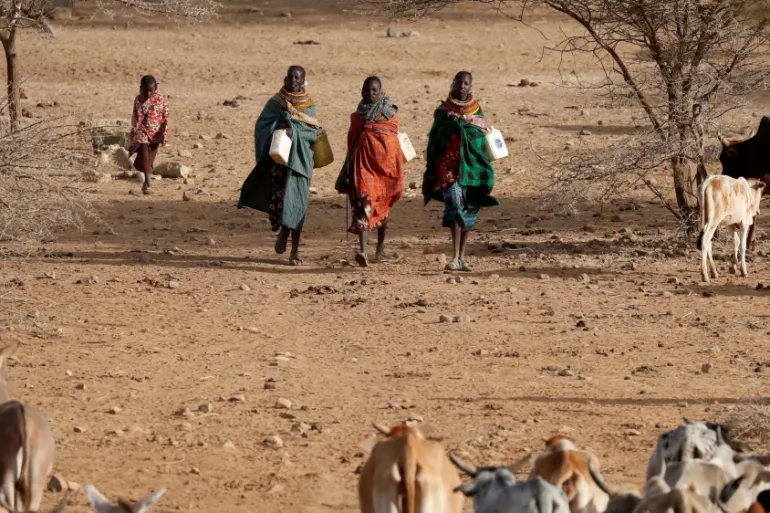Kenya wastes 40% of food as millions face hunger

The report warns that the amount of wasted food is so large it could fill nearly 500 million 18-tonne trucks.
Kenya is discarding vast amounts of food even as millions of its people go hungry, a new report has revealed. According to the World Resources Institute Africa, the country wastes up to 40 per cent of the food produced annually, amounting to about 9 million tonnes valued at Sh72 billion.
This comes at a time when 15 million Kenyans, nearly 28 per cent of the population, are grappling with food insecurity, according to UN figures.
The report warns that the amount of wasted food is so large it could fill nearly 500 million 18-tonne trucks.
It highlights serious losses across staple foods and high-value crops, with maize alone recording between 20 and 36 per cent wastage before reaching consumers. Potatoes, the country’s second most important crop, face 23 per cent losses.
“Fresh fruits suffer the worst fate, up to 56 per cent of mangoes, 15–35 per cent of avocados and 7–11 per cent of bananas never make it to the plate, while fish, a key source of protein, records 34 per cent loss,” the report says.
The report stresses that this level of waste erodes farmer incomes, undermines national food security and squanders essential resources such as water, land, and energy.
FAO estimates show that nearly 15 million Kenyans are food insecure, while Unicef notes that one in four children under five is stunted, reflecting deep-rooted malnutrition.
In 2021, about 39 per cent of households could not afford a healthy diet. At the same time, a UNEP Food Waste Index revealed that Kenyans throw away an average of 99kg of food per person each year, translating to 5.2 million tonnes wasted nationally.
Kenya is part of the 2014 Malabo Declaration that required African Union members to halve post-harvest losses by the end of 2025.
It has also committed to Sustainable Development Goal 12.3, which targets halving food waste and reducing food losses by 2030. However, the WRI report cautions that the country is falling short of its commitments.
“Weak monitoring systems, lack of standardised measurement methods, limited financing and poor coordination across agencies have left the country unable to track progress or design effective interventions,” the report says.
“Without reliable data, it is impossible to set meaningful targets, design effective interventions or accurately track progress.”
The report outlines various causes of losses across different sectors.
For maize, poor storage practices are the leading factor, responsible for up to 70 per cent of losses, as farmers often harvest too early, leaving the crop prone to mould, insect damage, and aflatoxin contamination.
In the fruit sector, perishability remains the greatest challenge, with mangoes and bananas spoiling quickly due to poor storage and transport conditions.
Mangoes destined for domestic markets suffer up to 35 per cent losses, compared to 18 per cent in export markets where stricter handling and cold storage are used.
“For fish, inadequate preservation facilities, unreliable cold storage and long transport distances mean that nearly a third of the catch goes to waste before reaching consumers,” the report says.
The WRI calls for urgent reforms across the food chain. It recommends a target–measure–act approach, which sets clear reduction goals, measures food loss accurately, and applies evidence-based solutions.
Other proposals include investing in affordable storage, drying and transport facilities, training farmers on better harvesting and post-harvest handling, and creating policies to encourage donations of surplus food to food banks.
The report also stresses the importance of incorporating food loss and waste reduction into climate policies, Nationally Determined Contributions, and public awareness campaigns to cut household food waste.
The authors emphasize that tackling the crisis is a shared responsibility that requires government, agribusinesses, researchers, civil society, and consumers to act together.
